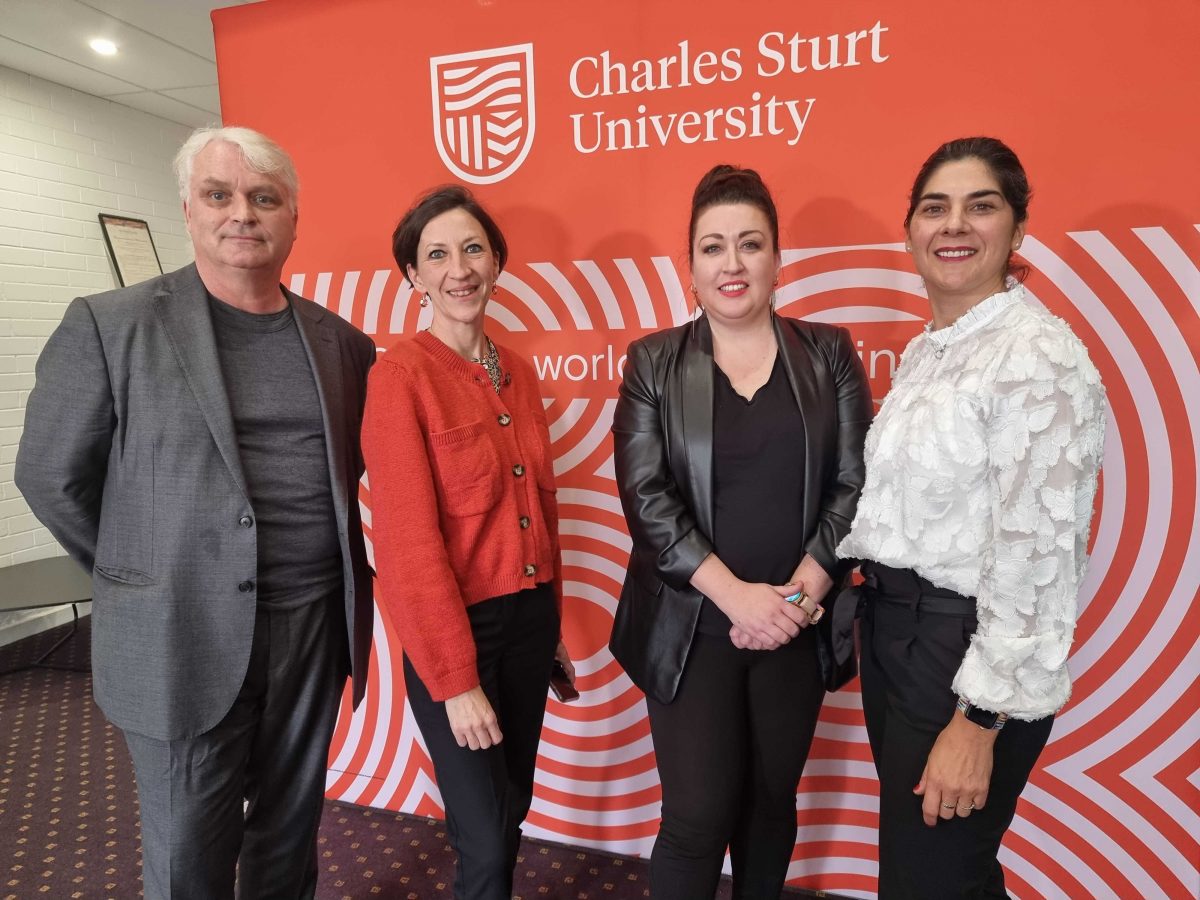
Charles Sturt University Deputy Vice-Chancellor of Research Mark Evans, French Trade and Investment commissioner Stephanie Morley, Business NSW Riverina Murray director Serena Hardwick and Exportia managing director Christelle Damiens. Photo: Shri Gayathirie Rajen.
In her visit to Wagga, the Embassy of France Australia Trade and Investment commissioner shared the business opportunities in the global markets with government and regional industry representatives from Riverina Murray.
On 31 May, commissioner Stephanie Morley was hosted by Charles Sturt University and Business NSW and met representatives from government, industry and the university to leverage opportunities with the French agritech and green tech markets.
Event attendees also included representatives from Business France, Exportia, RSM and the French embassy.
A roundtable discussion covered the overview of the European market, support available from the French Government, market entry tips and the opportunities on offer in the Green Agritech market.
Ms Morley said France was a major player in agricultural production and was making significant investments in its future.
“France is moving towards a secure, modern and sustainable agri-food industry,” she said.
“With €2.3 billion, France 2030 is investing in innovation, scientific research, industrialisation and expertise to strengthen the agricultural and food sectors in territories and to increase the production capacity and diversification of crops.
“To meet its ambitions in terms of food sovereignty, the French Government will support and accompany investments in innovative equipment and solutions contributing to healthy, sustainable and traceable food.”
Riverina Murray Business NSW regional director Serena Hardwick said the visit was about learning what opportunities the European market offered.
“It was great for business to hear about the subsidies, available help, and what those opportunities and industries are,” she said.
“The event was about agri-tech and green tech and it highlighted the opportunities for Australian businesses and innovators to find the European markets, including the France sector.
“From a Business NSW perspective, we’re trying to help build capacity and capability in our local businesses, whether that’s education on new markets and opportunities or helping them skill up.”
Ms Hardwick said business conditions data showed one of the reasons why local businesses didn’t procure locally was that they didn’t network.
“Networking is definitely part of these events, and acknowledging the talent and capability and capacity we have here in the Riverina Murray,” she said.
“This is a unique opportunity in terms of identifying overseas markets … we’d like to do more of these to showcase those opportunities to our businesses.”
CSU Deputy Vice-Chancellor of Research Mark Evans said the talks with French counterparts were important to ensure the university was providing the new technologies that could support the post-carbon world.
“The trading relationship [with France] is becoming more and more important in a post-carbon world because of decarbonisation in Europe,” Professor Evans said.
“The cost of production for particular agricultural goods has gone through the roof and that creates space in the food bowl of Australia to export those goods to Europe.
“The opportunities for regional Australia are really quite fantastic in terms of the relationship with France and other key European states moving forward.
“It’s the largest market outside of China – we are talking about 500 million potential consumers.”
Professor Evans said Australia hadn’t exported enough to France over the past decade.
“The diversity of our agricultural market and what we could provide to the European market … the opportunities are quite staggering,” he said.
Australia’s biggest exports to France are coal bricks, wine and rapeseed.
Professor Evans said CSU was taking responsibility in providing research and development to support the medium and long-term economic development of the region.
